In 2023, U.S. investigators subpoenaed a major U.S.-based pharmaceutical research firm because of exotic monkey shipments it had received from an alleged “international primate smuggling ring” originating from Cambodia.
Charles River Laboratories said it would cooperate with the U.S. Department of Justice officials, and suspended shipments of primates to its U.S. labs from Cambodia.
But as one route for the drug-testing monkeys shut down, another opened wider – from Cambodia to Charles River’s labs in Quebec, Canada.
From massive caged enclosures in provinces near Phnom Penh, long-tailed macaques are now being imported into Canada for human drug testing development in unprecedented numbers, an investigation by the Southeast Asia Globe, Pulitzer Center and Toronto Star has found.
Since Charles River’s February 2023 announcement that it would stop monkey imports to the U.S., the value of Canadian imports of these endangered animals has spiked nearly six times to roughly 62 million USD, federal data shows. Charles River is the only registered importer of macaques from Cambodia in all of Canada.
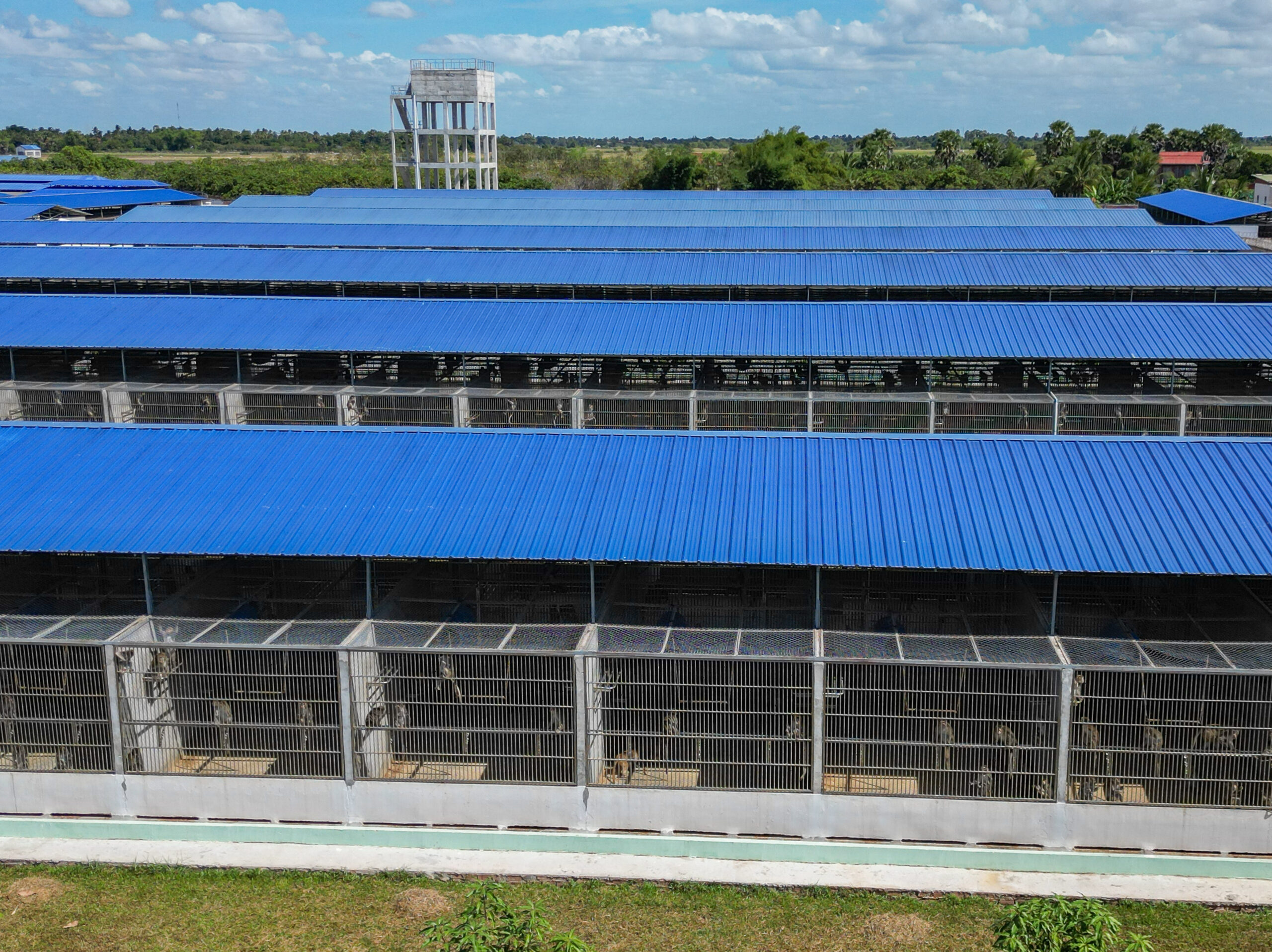
The import surge has prompted concerns that Canada has now inherited a tainted supply chain that includes wild long-tail macaques, protected animals that may harbor dangerous pathogens.
“While they’re [Charles River] doing the right thing in the U.S., they’re doing the wrong thing in Canada,” says Dr. Nicholas Dodman, a veterinary medicine expert and professor emeritus at Tufts Veterinary School in Boston. “It’s a kind of back door…They can still do their research, just not in the United States.”
In a statement, a Charles River spokesperson said the company complies with all Canadian regulations and, by abiding by strict protocols, it has ensured “no members of the public have been exposed to any health or safety risks from our facilities.”
The company said its facilities in Canada are part of its “global network” that includes “state-of-the-art operations in over 20 countries.” In a call with investors following the subpoena, Charles River’s CEO said the company quickly pivoted its monkey shipments to countries with “friendly governments” that are “working with us.”
Poached macaques allegedly smuggled into U.S.
Experts and animal rights activists question whether officials here have done enough to vet those imports.
Canadian officials point to numerous quality control checks in place to ensure proper importation of macaques. But a crucial stage of oversight falls to agents in the exporting countries – including two Cambodian government officials who were indicted by the same U.S. investigation that pulled Charles River into an international scandal and sent its stock value tumbling.
Charles River is not facing any charges and has only been subpoenaed.
The small, docile test subjects are used in Charles River’s lab research, including the development of a COVID-19 vaccine. Animals used in such research are supposed to be captive bred, according to international protocols.
The 2022 indictment alleged thousands of monkeys imported into the U.S. were wild macaques that were poached and laundered through the legal trade of the captive-breds. Officials suspect about 2,600 wild macaques entered the U.S. on false permits since 2018.
The same year of the indictment, the status of long-tailed macaques on the Red List of Threatened Species was upgraded to “endangered.” The threat report listed “biological resource use” as a leading cause of the decline of macaques in the wild.
There are good reasons why laboratory animals should not be captured from the wild, says Andrew Knight, veterinary professor of animal welfare at Australia’s Griffith University.
“Scientifically, their genetic composition, and their health or disease status, may be unknown or variable, which can make experimental results less reliable,” he says. “Additionally, there are major animal welfare concerns when primates are captured from the wild, or transported from breeding centres close to wild populations.”
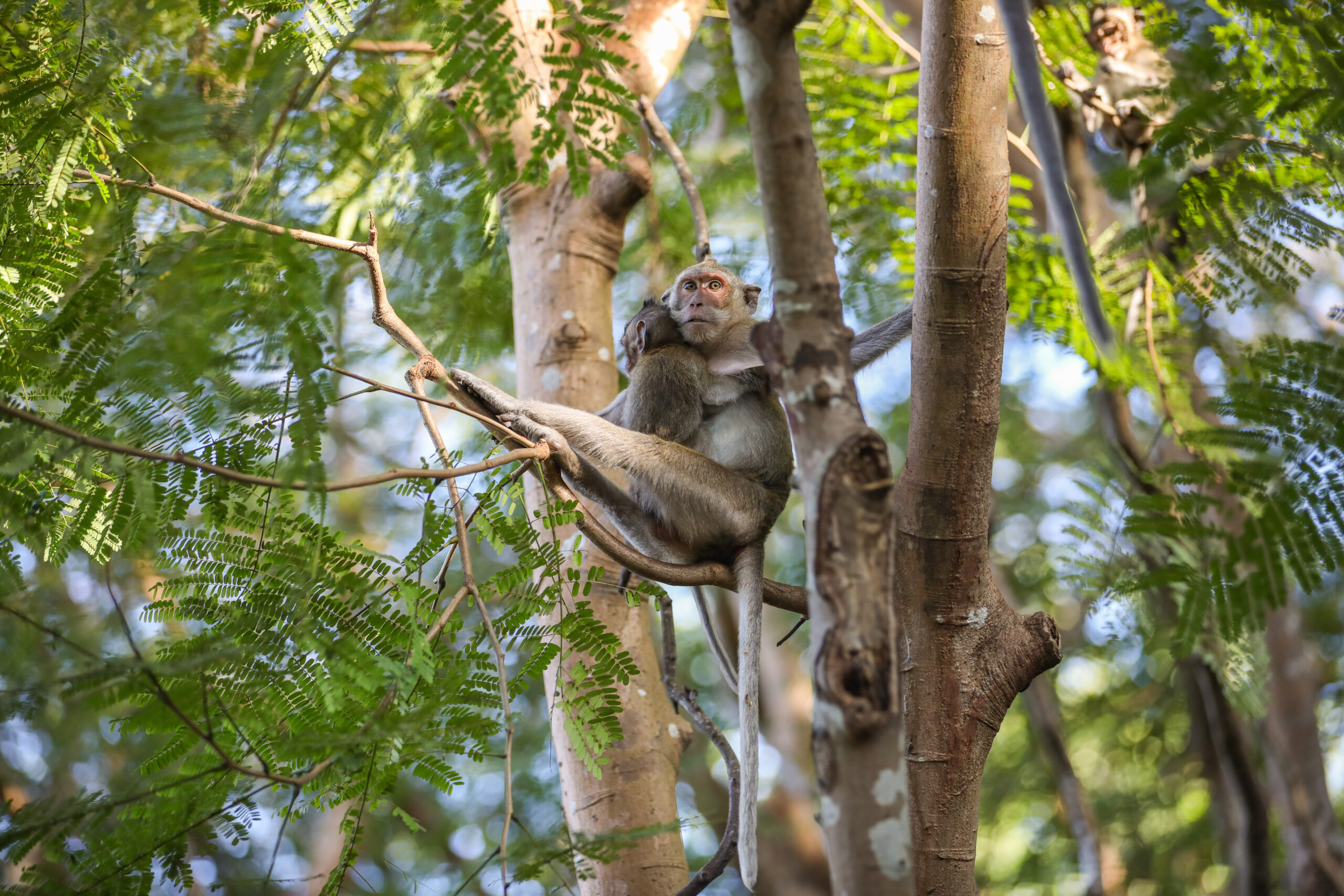

“Human health and animal welfare is paramount”
Canadian regulators should pay more attention to the importation of macaques, not only because of the alleged problems U.S. investigators found but also because Cambodian monkeys could bring diseases, says Lisa Jones-Engel, a senior science advisor with the U.S. activist group People for the Ethical Treatment of Animals (PETA).
“Charles River…went just to the north to Canada and not only did (Canadian officials) not shut it down, but it appears they threw the borders wide open, rolled out the red carpet,” she said. “And Canadian officials are ignoring that monkeys exported from Cambodia have been harboring pathogens that not only represent a deadly zoonotic risk, but the presence of these pathogens further undermines and confounds the use of these monkeys in experimentation.”
In May, Jones-Engel wrote a letter to officials in Ottawa that warned this primate trade is characterized by the “highest risk of zoonotic disease transmission” and that “Canadian residents may be paying the price for this industry’s hazardous practices.”
She told the Globe that the possibility of wild-caught monkeys entering the supply chain “means that this industry is more likely to usher in the next pandemic than it is to prevent it.”
we may produce or import animals carrying infectious agents capable of causing disease in humans
Charles River Laboratories
A recent case study by U.S. researchers tied a case of melioidosis, an infectious disease that can affect both humans and animals, to a Cambodian macaque imported to the U.S. in January 2021.
The animal was not imported by Charles River, the company said.
In a statement, Charles River said it respects the views of “groups and individuals who deeply oppose the use of animals in human drug testing.”
“However, any factual and fair assessment of how [Charles River] carries out such drug testing would conclude that our commitment to both human health and animal welfare is paramount. We have no doubt that the people whose lives have been saved or immeasurably improved by the drugs we have helped develop would agree with us.”
In addition to COVID vaccines, the company develops drugs to treat cancer, diabetes and rare diseases.
The company did not respond directly to questions about whether wild-caught monkeys could have been included in their Canadian supply chain. In a 2020 form to the U.S. Securities and Exchange Commission, Charles River noted that “we may produce or import animals carrying infectious agents capable of causing disease in humans,” which “could be a possible risk of human exposure and infection.”
The company says its strict protocols include a 30-day quarantine for imported primates and required disease testing, all monitored by Canadian officials.
Canadian officials echoed Charles River, saying they closely monitor the primates to ensure public safety.
Dodman, the expert in veterinary medicine, is less certain.
“Grabbing a monkey out of a tree and shipping them to a lab, you’re asking for a health crisis,” he says. “However many precautions they take, they can make mistakes and who knows the incubation time on some of these diseases?”
Oversight relies on permits issued in Cambodia
Environment and Climate Change Canada (ECCC) monitors the importation of animals going to labs.
To do that, the federal government relies on the Convention for the International Trade of Endangered Species (CITES), which is run by the United Nations, to properly vet the animals’ origin and ensure there is no harm to species’ wild population.
The officials in Ottawa said they look to ensure the incoming animals have CITES permits issued by officials in the originating country.
But Masphal Kry and Omaliss Keo, the two high-level Cambodian officials indicted by the U.S. Department of Justice, lead the CITES Management Authority in Cambodia that issues the permits Canadian officials say they rely upon.
Kry, who was arrested in the U.S. in November 2022, while on his way to a convention on the international trade of endangered species, is the only one so far who has stood trial. On March 22, he was found not guilty of smuggling and conspiracy to smuggle. His lawyers did not respond to a request for comment.
Despite the indictment, Keo is still listed as the CITES chairman for “terrestrial forest and wildlife resources” in Cambodia. When reached, Keo did not answer specific questions, but responded, “I thank [you] for your email and appreciate your asking (for clarification) and finding truth. I will respond as soon as possible.”
Upon Kry’s verdict and return to Phnom Penh, the Ministry of Agriculture, Forestry and Fisheries released a statement that read “This misrepresentation [the arrest of Kry] was based on evidence obtained via improper investigations, concealed from Cambodian authorities, and contravening normal practices of cross-border law enforcement norms.”
The press release continued that the allegations against Cambodia regarding the long-tailed macaque trade had no evidence and relied on unfounded assertions disseminated by certain individuals or NGO personnel, disseminated through local unprofessional media and Western mainstream media, aiming to discredit Cambodian officials and influence the court decision.”
Also facing charges are six officials affiliated with Vanny Bio-Research, a major exporter of long-tailed macaques bred for use in research. In a statement, the company said it “denies any wrongdoing.”
The allegations by U.S. prosecutors carry significant implications, said Sarah Kite, co-founder of the international advocacy group Action for Primates, adding that they “raise serious questions regarding how widespread this smuggling operation was — and may continue to be — in Cambodia.”
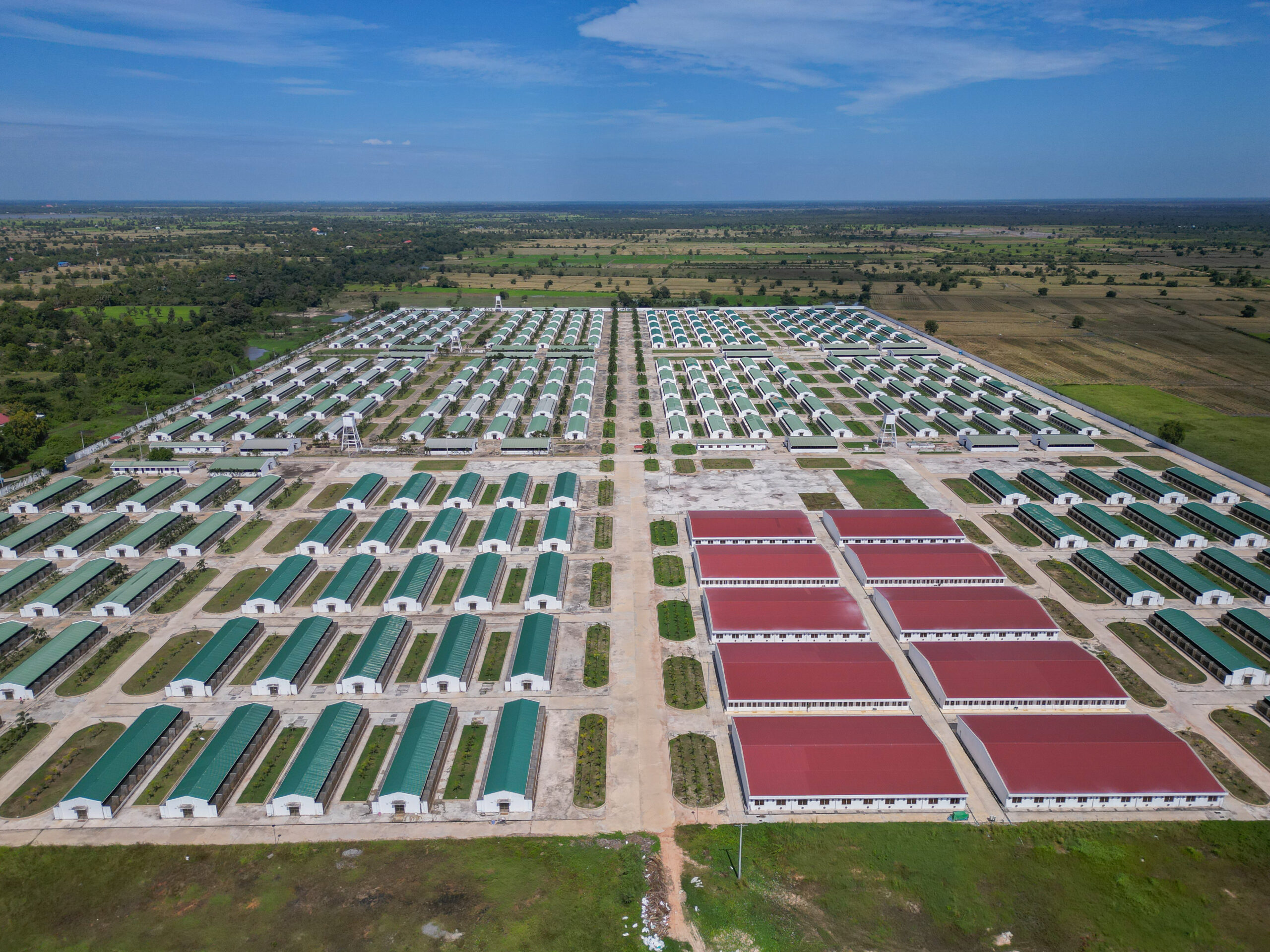

“By continuing to allow the importation of long-tailed macaques from Cambodia, Canada may be… contributing substantially to the cruelty of trapping, and the decimation of the species in the wild,” Kite continued.
Monkey shipments pivoted to ‘friendly’ countries
While the U.S. government has not officially instituted a ban on the import of Cambodian monkeys, redacted letters from the U.S. Fish and Wildlife Service show that at least two re-export requests of live long-tailed macaques and biological specimens have been denied since the indictment.
Pierre Verreault, executive director of the Canadian Council on Animal Care, which inspects Charles River facilities and other Canadian labs to ensure animal welfare, says the U.S. government’s probe is a key way to find out whether the supply chain is tainted. “Hopefully, if there’s something wrong there, it will stop.”
In the meantime, Charles River’s movement of macaque importations away from the U.S. has had no significant impact on operations, CEO James Foster said in a September conference call with investors.
While the indictment “was very concerning,” the company pivoted to its “international footprint, which is quite large, we have got great facilities all over.”
“We have friendly governments…working with us…We’re not going to pivot back to the U.S…The preponderance will be done elsewhere,” Foster said.
Charles River is also facing a class action lawsuit from shareholders. The plaintiffs allege that the company “made materially false and/or misleading statements” and failed to disclose that the company had “engaged in illegal activity with respect to its importation of non-human primates for research” including relying on “non-preferred suppliers of animals from Cambodia.”
As a result of the company’s “precipitous decline in market value” following the subpoena, shareholders have suffered “significant losses and damages,” the claim alleges.
Charles River did not respond to questions about the civil lawsuit. In a court filing responding to the allegations, the company denied making any false statements, saying that it “regularly warned investors of the risks of supply interruption” and potential need to rely on alternative suppliers.
“Charles River expressly warned investors about the risk of disruption to its supply of macaques and about the possibility that its operations may not comply with laws, including laws governing the importation of macaques,” the response reads. “Charles Rivers’ warning that it might be required to source products from ‘non-preferred’ vendors demonstrates that the company was being transparent, not attempting to mislead the market.”
Charles River has asked the court to dismiss the civil claim.
~~~
This article was produced by a collaboration between The Toronto Star and Southeast Asia Globe, with support from The Pulitzer Center’s Rainforest Investigations Network.










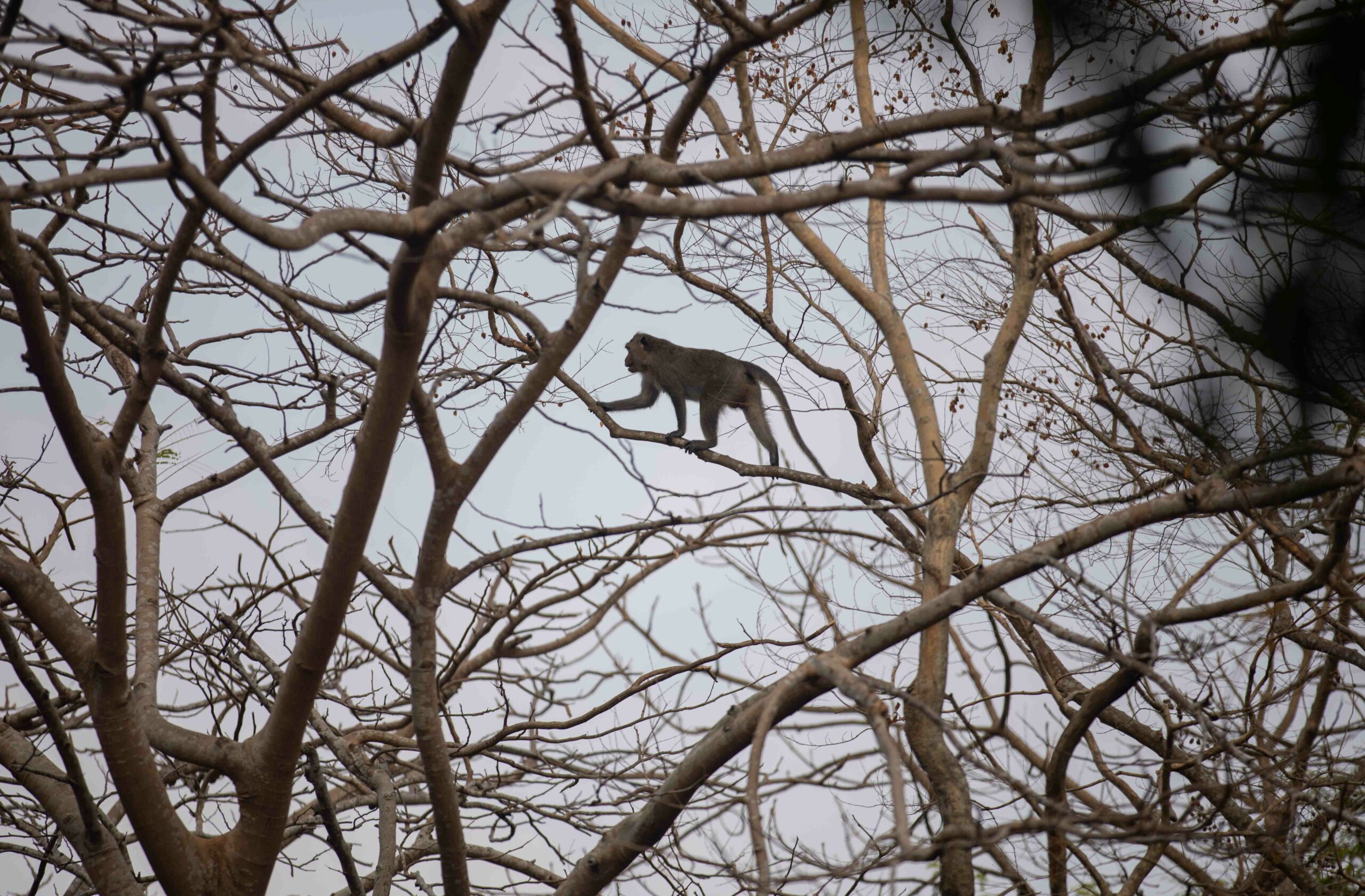

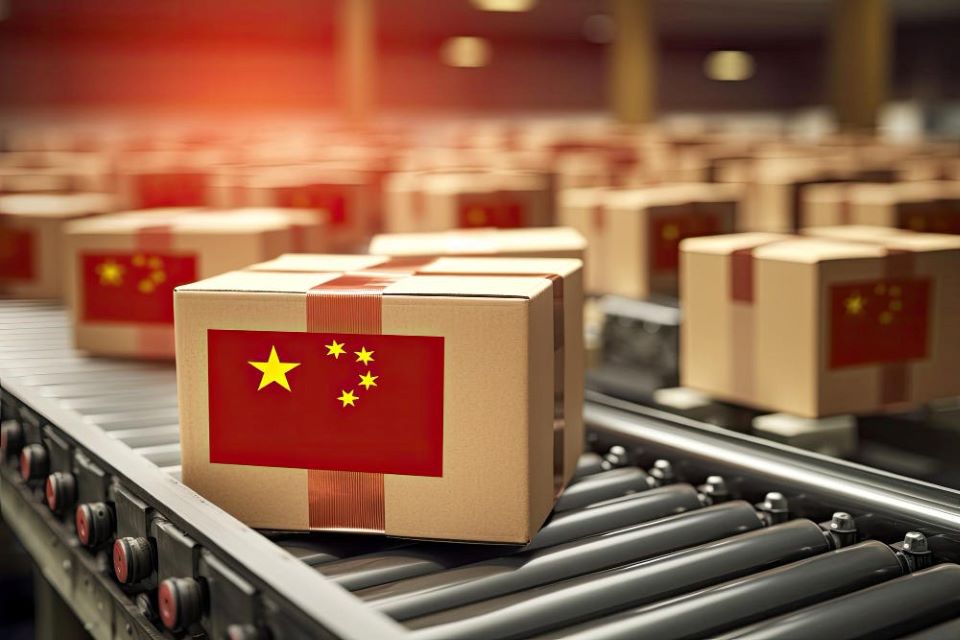




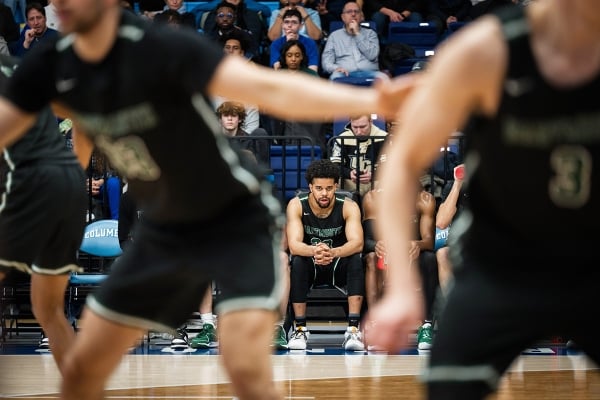

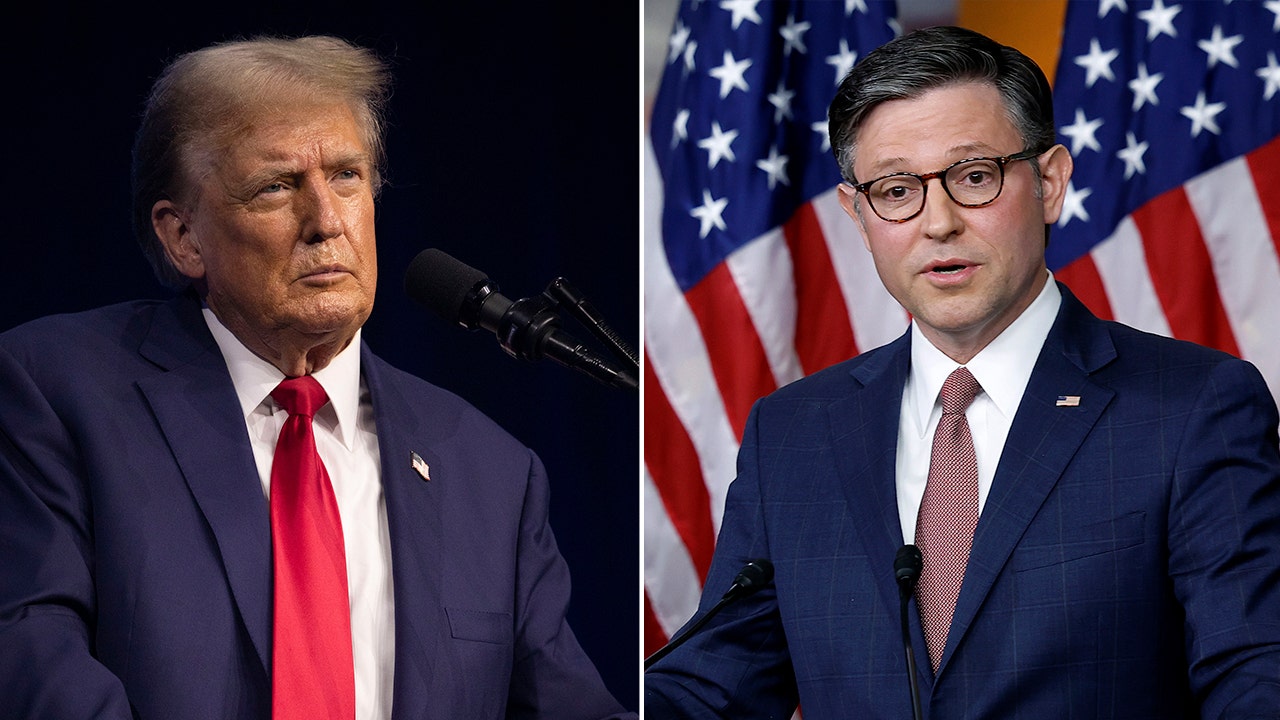

Discussion about this post